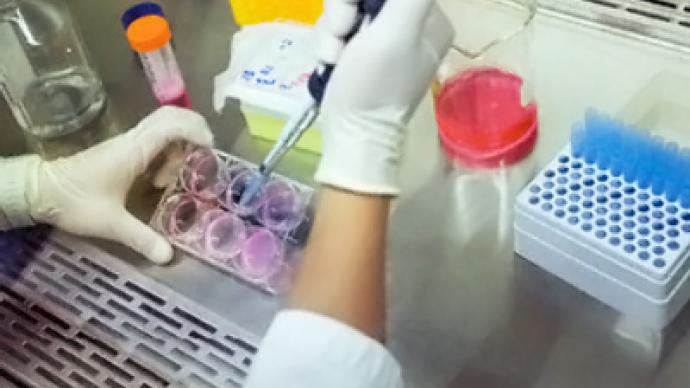Hopes for medical breakthroughs in stem cell research dashed

Medical researchers anticipating major breakthroughs in stem cell research have been sobered by a report from Israel warning that injections of stem cells from aborted human fetuses can trigger tumors.
Embryonic stem cells have been seen as having a potential for remedying diseases from Parkinson’s, Alzheimer’s, multiple sclerosis and diabetes to heart disease, spinal cord injuries and severe eye diseases. Stem cells have a unique, chameleon-like ability of taking on the characteristics of any of the specialized cells in the human body whether in the brain, blood, intestinal tissues, muscles or nerves. They thus can be used in laboratories to study hitherto untreatable diseases and develop drugs to treat them. Stem cells deriving from aborted human embryos can also reproduce themselves infinitely in culture.
The latest Israeli findings, documented in an article in the US Public Library of Science (PLoS), concern a 16-year-old youth suffering from a rare genetic degenerative disease, ataxia telangiectasia (AT), since he was a young child. Although his Israeli doctors warned against it, his parents sent the boy to Moscow for injections of fetal stem cells into his brain and spinal cord more than six years ago. Recent examinations showed that the youth had developed several benign tumors in his brain and spinal cord which doctors at Sheba Medical Center near Tel Aviv say clearly derive from the stem cell injections.
Dr. Bernadine Healy, former head of the US National Institutes of Health, said the Israeli report demonstrated that research based on embryonic stem cells was ‘obsolete’.
However, Israeli researchers take a less stringent view. “We by no means suggest that stem cell research be halted,” said Dr. Ninette Amariglio, one of the Israeli researchers involved in the case. “We do suggest extensive research into the biology of stem cells. Researchers have to be aware of possible dangers.”
Israel has been at the forefront of stem cell research almost since an American biologist, James Thomson, reported the first isolation and culturing of human embryonic stem cells in 1998. In 2006, the prestigious journal The Scientist reported that Israeli scientists had published more articles per capita on stem cell research, in the period 2000-2004, than scientists from any other country. Israel had 113 articles for every one million citizens. The closest competitor was Sweden with 82 articles. The US was sixth with 47 articles. Research in Israel has intensified since then, and there are presently ten separate research groups in the field.
The use of human embryos has raised moral questions among Christian circles in the US and led to former President Bush curbing government funds going to such research. There are, however, no Jewish prohibitions to hobble stem cell research in Israel. Jewish tradition, says Rabbi Elliott Dorff, a professor at the University of Judaism in California, regards the human fetus as being ‘like water’ for the first 40 days. Only from the 41st day is it regarded as a human being. “The Jewish religion would consider it far better to use (embryonic stem cells) for cures than to simply throw them away,” he said.
A leading Israeli researcher, Dr. Benjamin Reubinoff, said last year that clinical trials involving the use of human embryonic cells to replace diseased cells in patients suffering a variety of serious afflictions like Parkinson's Disease were expected to get underway in a few years. In the US, the government approved in January a clinical study into the use of embryonic stem cells in the treatment of spinal cord injuries. Eight to ten paraplegics are to receive stem cell injections this summer to see whether it revives sensation in their legs. It is not clear whether the Israeli finding will affect this experiment.
Abraham Rabinovich for RT












